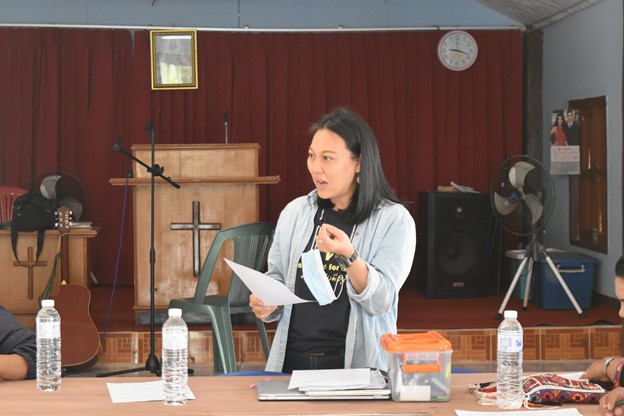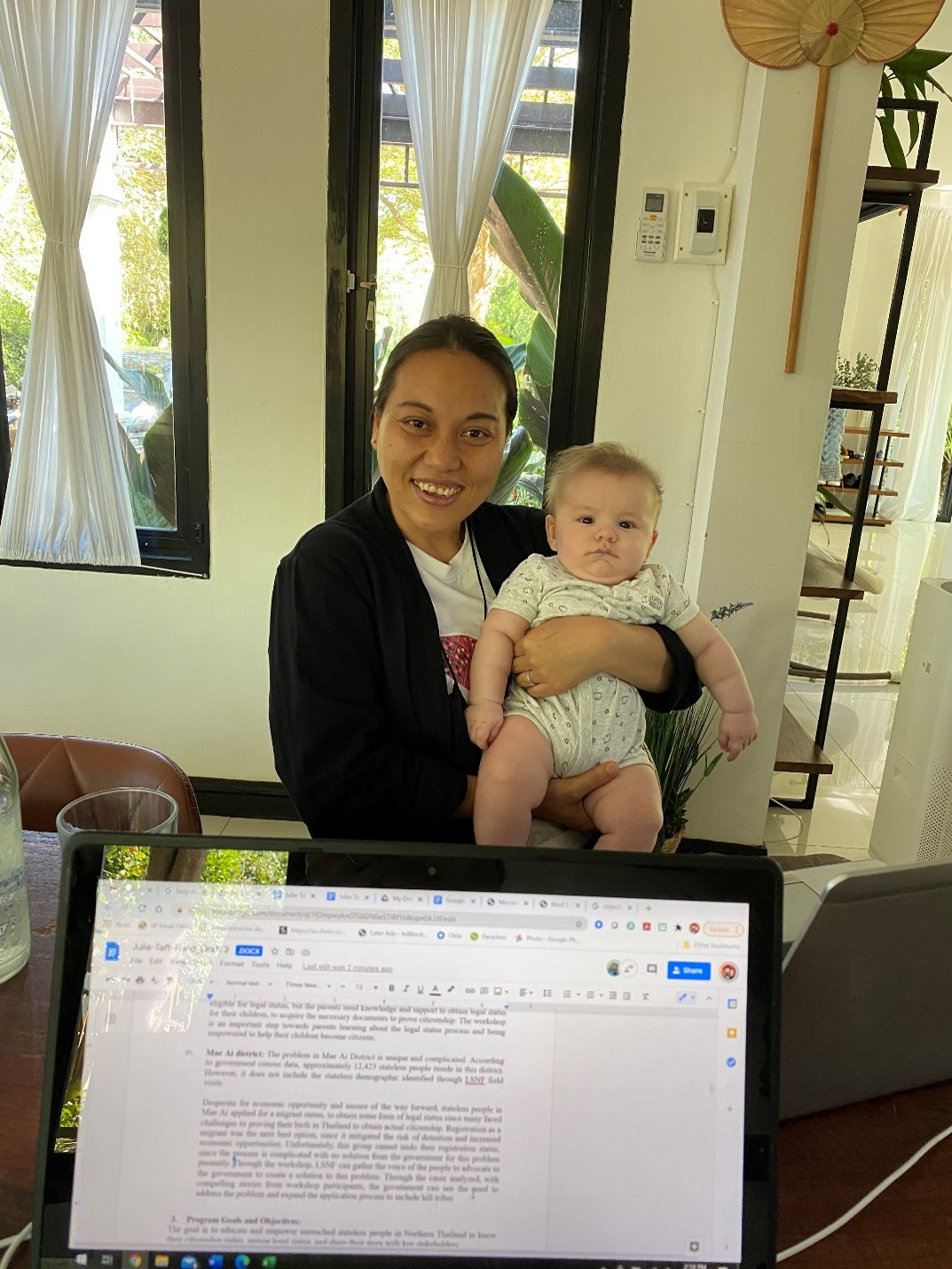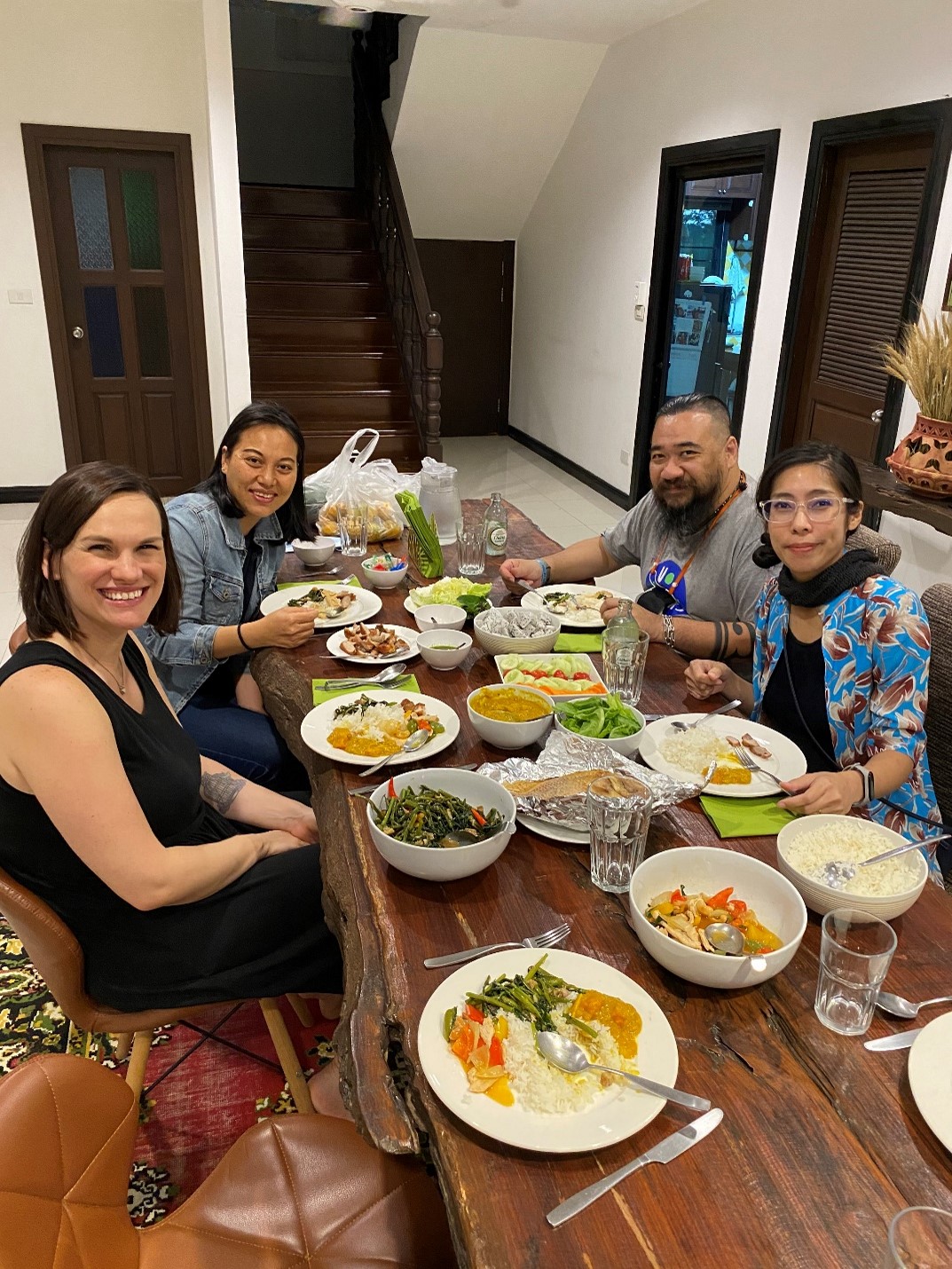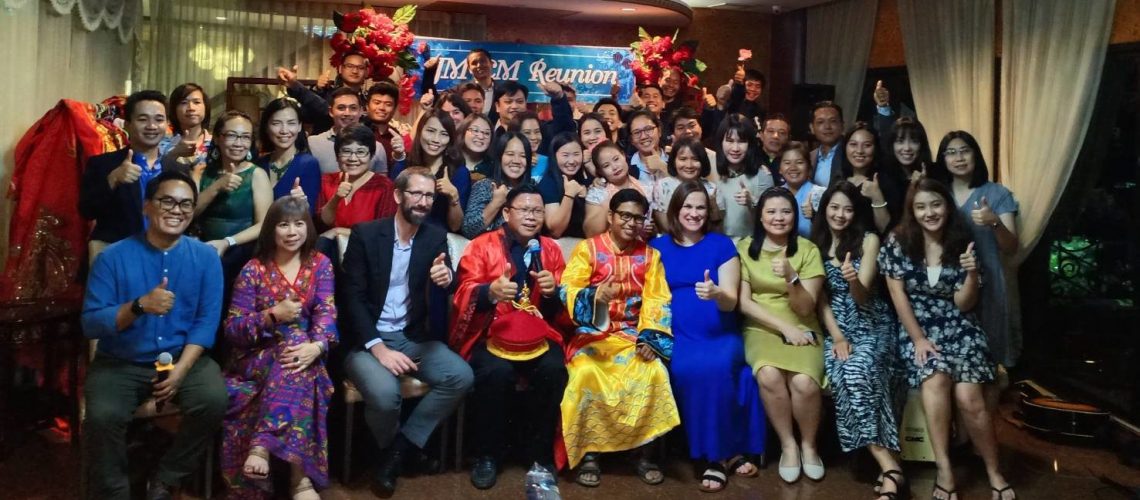 By Heather Jemison
By Heather Jemison
In January 2019, I began working with International Justice Mission (IJM) in their field office in Chiang Mai, Thailand, where we live and serve with Paraclete. Though IJM is known as the world’s largest international anti-trafficking organization, the programs in Chiang Mai focused primarily on the prevention of human trafficking by tackling one of the fundamental risk factors: statelessness.
Joining the efforts as a volunteer program manager, I started to learn about the complexity of statelessness experienced by approximately 400,000 ethnic minorities across the mountainous region of Northern Thailand. Worldwide, an estimated 10 million people are stateless, meaning they hold no citizenship of any kind, anywhere, according to figures from the

United Nations High Commissioner for Refugees (UNHCR). The basic rights of being a citizen are lost, with no registered existence or protection. For hill tribe members, Thailand is the country of their birth, granting them access to legal status. However, complicated regulations, lack of access to resources, discrimination, and government apathy prevent many from receiving identification documents and registration status to prove citizenship.
As a stateless person, vulnerability to exploitation, abuse, and trafficking increase exponentially. In fact, the United Nations Educational, Scientific and Cultural Organization (UNESCO) identified a lack of citizenship or legal status as the primary risk factor for women and girls in Thailand to be trafficked or otherwise exploited. Furthermore, access to fundamental human rights is detrimentally impacted. Hill tribe members are often denied treatment at hospitals, prohibited from owning land, and at risk of arrest when traveling outside their home district. The right to attend school or to a fair wage for labor is also not guaranteed or protected, which negatively impacts futures and livelihoods.

Learning of this issue faced by hundreds of thousands, IJM launched a program in 2007 to advocate to the government and support legal status applications for hill tribe members. For over a decade, IJM Chiang Mai worked to demonstrate that justice for the most vulnerable –specifically stateless people –is possible through moving the government to prioritize citizenship rights, connecting and empowering communities to advocate for their legal rights, and providing legal status support for ethnic hill tribe people groups. Through their efforts, IJM helped 24,085 people throughout Northern Thailand secure legal status or citizenship. Leaving statelessness behind, citizenship marks the beginning of a whole new life and future for individuals and families!
At the end of September 2020, the efforts of the IJM Chiang Mai Field Office came to an end after more than 20 years of work in Northern Thailand. Though
the programs concluded, the fight does not end there. Out of IJM, a group of lawyers, caseworkers, and community-based advocates came together to launch a new organization, committed to continuing the fight to end statelessness. Led by the former IJM Program Manager, La-aw Kukaewkasem founded an organization called Legal & Advocacy Walk (LAW), which began the day after IJM closed its operation. Since that time, she has planned and coordinated trainings throughout unreached communities, providing vital knowledge of legal status eligibility to stateless people.
 In January, I invited La-aw along with other former IJM staff members over for a potluck of delicious Thai food and to catch-up on life. During dinner, La-aw mentioned her organization’s need for support with grant applications. Seeing opportunity, I volunteered
In January, I invited La-aw along with other former IJM staff members over for a potluck of delicious Thai food and to catch-up on life. During dinner, La-aw mentioned her organization’s need for support with grant applications. Seeing opportunity, I volunteered
to provide support to La-aw and the team with applying for grants and producing other documents required for the organization’s efforts. In this way, I am able to continue working in an area I care about deeply – seeing people receive access to basic human rights and protection.
Today, the organization is making incredible strides towards meeting the needs and reaching stateless people. For the remainder of the year, La-aw and the team will travel to four different unreached areas, to provide training to more than 300 stateless people. With funding, the opportunities will continue to increase, to enable the team to expand efforts to reach more people.
If you would like to be a part of the fight to end statelessness in Northern Thailand, consider donating to LAW – Legal & Advocacy Walk. Through a donation of only $35 USD, one more stateless person will be able to learn about their rights and receive one-on-one support from LAW’s caseworkers, to receive legal status for the first time. This basic step towards citizenship will open the door to education, health care, voting rights, property ownership, travel, and employment.

